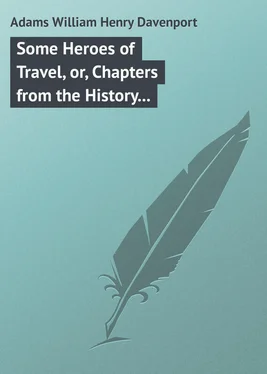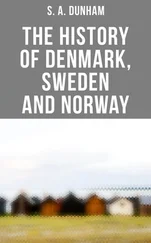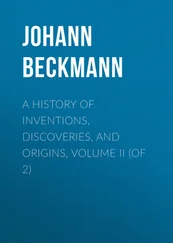William Adams - Some Heroes of Travel, or, Chapters from the History of Geographical Discovery and Enterprise
Здесь есть возможность читать онлайн «William Adams - Some Heroes of Travel, or, Chapters from the History of Geographical Discovery and Enterprise» — ознакомительный отрывок электронной книги совершенно бесплатно, а после прочтения отрывка купить полную версию. В некоторых случаях можно слушать аудио, скачать через торрент в формате fb2 и присутствует краткое содержание. Жанр: foreign_language, foreign_prose, на английском языке. Описание произведения, (предисловие) а так же отзывы посетителей доступны на портале библиотеки ЛибКат.
- Название:Some Heroes of Travel, or, Chapters from the History of Geographical Discovery and Enterprise
- Автор:
- Жанр:
- Год:неизвестен
- ISBN:нет данных
- Рейтинг книги:3 / 5. Голосов: 1
-
Избранное:Добавить в избранное
- Отзывы:
-
Ваша оценка:
- 60
- 1
- 2
- 3
- 4
- 5
Some Heroes of Travel, or, Chapters from the History of Geographical Discovery and Enterprise: краткое содержание, описание и аннотация
Предлагаем к чтению аннотацию, описание, краткое содержание или предисловие (зависит от того, что написал сам автор книги «Some Heroes of Travel, or, Chapters from the History of Geographical Discovery and Enterprise»). Если вы не нашли необходимую информацию о книге — напишите в комментариях, мы постараемся отыскать её.
Some Heroes of Travel, or, Chapters from the History of Geographical Discovery and Enterprise — читать онлайн ознакомительный отрывок
Ниже представлен текст книги, разбитый по страницам. Система сохранения места последней прочитанной страницы, позволяет с удобством читать онлайн бесплатно книгу «Some Heroes of Travel, or, Chapters from the History of Geographical Discovery and Enterprise», без необходимости каждый раз заново искать на чём Вы остановились. Поставьте закладку, и сможете в любой момент перейти на страницу, на которой закончили чтение.
Интервал:
Закладка:
“Now, when the cloth had been removed, and all the servants had quitted the dining-hall, Messer Marco, as the youngest of the three, rose from table, and, going into another chamber, brought forth the three shabby dresses of coarse stuff which they had worn, on their arrival in the city. Straightway, with sharp knives they began to rip some of the seams and welts, and to draw forth vast quantities of jewels of the highest value – rubies and sapphires, carbuncles, diamonds, and emeralds – which had all been stitched up in those dresses so artfully that nobody could have suspected their presence. For when they took leave of the Great Khan, they had converted all the wealth he had bestowed upon them into this mass of precious stones, being well aware of the impossibility of carrying with them so great an amount in gold, over a journey of such extreme length and difficulty. The exhibition of this immense treasure of jewels and precious stones, all poured out upon the table, threw the guests into fresh amazement, so that they appeared bewildered and dumfounded. And straightway they recognized, what they had formerly doubted, that the three strangers were indeed those worthy and honoured gentlemen of the Polo family whom they had claimed to be; and paid them the greatest reverence. And the story being bruited abroad in Venice, the whole city, gentle and simple, hastened to the house to embrace them, and make much of them, with every demonstration of affection and respect. On Messer Maffeo, the eldest, they conferred an office that in those days was of high dignity; while the young men came daily to visit and converse with the ever polite and gracious Messer Marco, and to ask him questions about Cathay and the Great Khan, all of which he answered with such courtesy and kindliness, that every man felt himself in a manner in his debt. And as it chanced that in the narrative which he was constantly called on to repeat of the magnificence of the Great Khan, he would speak of his revenues as amounting to ten or fifteen ‘millions’ of gold, and, in like manner, when recounting other instances of great wealth in those remote lands, would always employ the term ‘millions,’ people nicknamed him Messer Marco Millioni – a circumstance which I have noted also in the public books of this Republic where he is mentioned. The court of his house, too, at S. Giovanni Crisostomo has always from that time been popularly known as the Court of the Millioni.” 2 2 A rich, quaint, walled-up doorway, in semi-Monastic, semi-Byzantine style, still extant in the Corte del Sabbrin, or Corta Sabbonicia, is nearly all that remains of the house of Messer Marco Palo.
We pass on to 1298, a year which witnessed a fresh outburst of the bitter enmity between Genoa and Venice. The Genoese, intent upon crushing their formidable rival, despatched a great fleet into the Adriatic, under the command of Lamba Doria. Off the island of Curzola they were met by a more powerful armada, of which Andrea Dandolo was admiral, and one of the galleys of which was commanded by Marco Polo. The battle began early on the 7th of September, the Venetians entering into it with the glad confidence of victory. Their impetuous attack was rewarded by the capture of the Genoese galleys; but, dashing on too eagerly, many of their ships ran aground. One of these was captured, cleared of its crew, and filled with Genoese. Closing up into a column, the Genoese pushed the encounter hotly, and broke through the Venetian line, which the misadventure we have spoken of had thrown into disorder. Throughout the long September day the fight was bravely supported; but, towards sunset, a squadron of cruising ships arriving to reinforce Doria, the Venetians were taken in flank, and finally overpowered. The victory of the Genoese was complete; they captured nearly all the Venetian vessels, including the admiral’s, and seven thousand men, among whom were Dandolo and Marco Polo. The former disappointed the triumph of his victors by dashing out his brains against the side of his galley; the latter was removed to Genoa.
During his captivity Polo made the acquaintance of a Pisan man of letters, named Rusticiano, or Rustichello, who was a prisoner like himself. When he learned the nature of Polo’s remarkable experiences, this Pisan gentleman, not unnaturally, urged him to record them in writing; and it would seem that the great traveller complied with the request, and dictated to his new friend the narrative that has since excited so much curious interest. Through the intervention of Matteo Visconti, Captain-General of Milan, peace was concluded in May, 1299, between Genoa and Venice, and as one of the conditions was the release of prisoners on both sides, Messer Marco Polo soon afterwards obtained his freedom, and returned to his family mansion in the Corte del Sabbrin. He took with him the manuscript story of his world wanderings, and in 1306 presented a copy of it to a noble French knight, Thibault de Cipoy, who had been sent on a diplomatic mission to Venice by Charles of Valois.
The closing years of a life which, in its spring and summer, had been crowded with incident and adventures, were undisturbed by any notable event, and in his old age Marco Polo enjoyed the sweetness of domestic peace and the respect of his fellow-countrymen. On the 9th of January, 1324, “finding himself growing feebler every day through bodily ailment, but being by the grace of God of a meek mind, and of senses and judgment unimpaired, he made his will, in which he constituted as his trustees Donata, his beloved wife, and his dear daughters, Fantina, Bellola, and Monta,” bequeathing to them the bulk of his property. How soon afterwards he died, there is no evidence to show; but it is at least certain that it was before June, 1325. We may conclude, therefore, that his varied life fulfilled the Psalmist’s space of seventy years.
Marco Polo, says Martin Bucer, was the creator of the modern geography of Asia. He was the Humboldt of the thirteenth century; and the record of his travels must prove an imperishable monument of his force of character, wide intelligence and sympathy, and unshaken intrepidity. We have thus briefly summarized his remarkable career, and indicated the general extent of his travels. To follow him in detail throughout his extensive journeys would be impossible within the limits prescribed to us; and we shall content ourselves, therefore, with such extracts from his narrative as will best illustrate their more interesting and striking features, and indirectly assist us in forming some conception of the man himself.
And first, we take his description of the great river of Badakshan and the table-land of Pamir – which the wandering Kirghiz call “The Roof of the World” – substituting modern names of places for those in the original.
“In leaving Badakshan, you ride twelve days between east and north-east, ascending a river [the Upper Oxus] that runs through land belonging to a brother of the Prince of Badakshan, and containing a good many towns and villages and scattered habitations. The people are Mohammedans, and valiant in war. At the end of those twelve days you come to a province of no great size, extending indeed no more than three days’ journey in any direction, and this is called Wakhan. The people worship Mohammed, and have a peculiar language. They are gallant soldiers, and have a chief whom they call None [No-no?], which is as much as to say Count, and they are liegemen to the Prince of Badakshan.
“There are numbers of wild beasts of all kinds in this region. And when you leave this little country, and ride three days north-east, always among mountains, you get to such a height that it is spoken of as the highest place in the world. And when you reach this height, you find a great lake between two mountains [Lake Sir-i-kol], and out of it a pure river [the Oxus] flows through a plain clothed with the most beautiful pasture in the world, so that a lean beast would fatten there to your heart’s content in ten days. There are great numbers of all kinds of wild beasts; among others, wild sheep of large size, with horns six palms in length [the Rass, or Ovis Poli ]. From these horns the shepherds make great bowls out of which to eat their food; and they use the horns also to enclose folds for their cattle at night. Messer Marco was told also that the wolves were numerous, and killed many of those wild sheep. Hence quantities of their horns and bones were found, and these were made into great heaps by the wayside, in order to direct travellers when snow lay on the earth.
Читать дальшеИнтервал:
Закладка:
Похожие книги на «Some Heroes of Travel, or, Chapters from the History of Geographical Discovery and Enterprise»
Представляем Вашему вниманию похожие книги на «Some Heroes of Travel, or, Chapters from the History of Geographical Discovery and Enterprise» списком для выбора. Мы отобрали схожую по названию и смыслу литературу в надежде предоставить читателям больше вариантов отыскать новые, интересные, ещё непрочитанные произведения.
Обсуждение, отзывы о книге «Some Heroes of Travel, or, Chapters from the History of Geographical Discovery and Enterprise» и просто собственные мнения читателей. Оставьте ваши комментарии, напишите, что Вы думаете о произведении, его смысле или главных героях. Укажите что конкретно понравилось, а что нет, и почему Вы так считаете.












